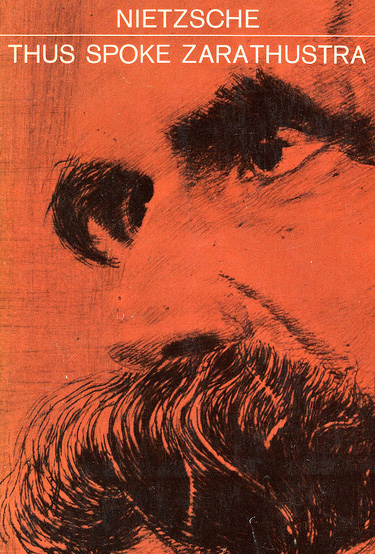10
Thus Zarathustra had spoken to his heart when the sun stood at noon, then he gazed at the sky with a questioning look, for above him he heard the sharp cry of a bird. And behold! An eagle cut broad circles through the air, and upon it hung a snake, not as prey but as a friend, for the snake curled itself around the eagle’s neck.
“It is my animals!” said Zarathustra, and his heart was delighted.
“The proudest animal under the sun and the wisest animal under the sun – they have gone forth to scout.
They want to determine whether Zarathustra is still alive. Indeed, am I still alive?
I found it more dangerous among human beings than among animals; Zarathustra walks dangerous paths. May my animals guide me!”
When Zarathustra had said this he recalled the words of the saint in the woods, sighed and spoke thus to his heart:
“May I be wiser! May I be wise from the ground up like my snake!
But I ask the impossible, and so I ask instead of my pride that it always walk with my wisdom!
And if some day my wisdom abandons me – oh it loves to fly away! – may my pride then fly away with my folly!”
– Thus began Zarathustra’s going under.
______________________
The above German-English translation by Adrian del Caro is taken from Thus Spoke Zarathustra (Cambridge University Press, 2006).

One reply on “Zarathustra’s prologue, 10”
And so Nietzsche’s literary prologue ends. Below, some snippets from the Cambridge introduction by Robert B. Pippin:
Zarathustra leaves his cave to revisit the human world because he wants both to prophesy and help hasten the advent of something like a new “attempt” on the part of mankind, a post “beyond” or “over the human” (Übermensch) aspiration. Such a goal would be free of the psychological dimensions that have led the human type into a state of some crisis (made worse by the fact that most do not think a crisis has occurred or that any new attempt is necessary).
The problem, then, that Zarathustra must address, the problem of “nihilism,” is a kind of collective failure of desire…
Nietzsche clearly thinks we cannot understand such a possibility, much less be both shamed and inspired by it, except by a literary and so “living” treatment of such an existential possibility. And Nietzsche clearly thinks he has such a chance, in the current historical context of crisis, collapse, boredom, and confusion, a chance of shaming and cajoling us away from commitments that will condemn us to a “last man” or “pale atheist” sort of existence, and of inspiring a new desire, a new “tension” of the spirit…
As noted, the problem Zarathustra confronts seems to be a failure of desire; nobody wants what he is offering, and they seem to want very little other than a rather bovine version of happiness. It is that sort of failure that proves particularly difficult to address, and that cannot be corrected by thinking up a “better argument” against such a failure.
The events that are narrated are also clearly tied to the question of what it means for Zarathustra to have a teaching, to try to impart it to an audience suffering in this unusual way, suffering from complacency or dead desire. Only at the very beginning, in the Prologue, does he try to “lecture publicly,” one might say, and this is a pretty unambiguous failure.
The reminder here of the Prologue appears to indicate that Zarathustra himself had portrayed his own teaching in a comically inadequate way, preaching to the multitudes as if people could simply begin to overcome themselves by some revolutionary act of will…
He had shifted from market place preaching to conversations with disciples in Part I, and at the end of that Part I he decides to forgo even that and to go back to his cave alone.